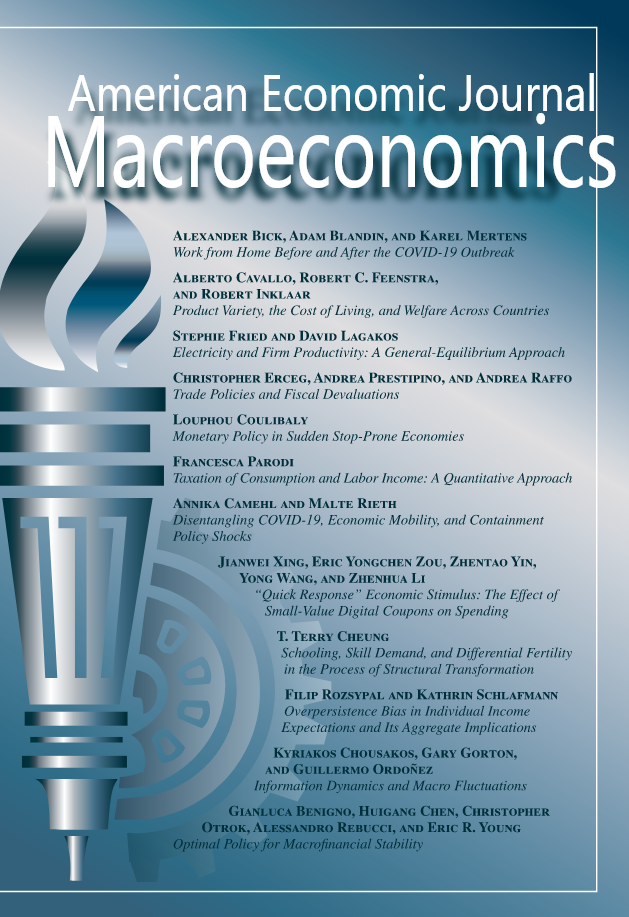信息摩擦下失业与工资的周期性行为
IF 5.7
1区 经济学
Q1 ECONOMICS
引用次数: 0
摘要
我提出了一种基于工人关于经济状况的嘈杂信息的新机制。工资不会立即对正的总体冲击做出反应,因为工人(还)没有足够的信息来要求更高的工资。该模型对现有工资缓慢和失业波动理论的两个主要批评是稳健的,即工资对新雇员是灵活的,就业的流动机会成本(FOCE)是顺周期性的。该模型产生了劳动力市场的波动性,以及相对于生产率的工资和FOCE弹性,与数据一致。(j24, j32, j24, j31, j63)本文章由计算机程序翻译,如有差异,请以英文原文为准。
The Cyclical Behavior of Unemployment and Wages under Information Frictions
I propose a new mechanism for sluggish wages based on workers’ noisy information about the state of the economy. Wages do not respond immediately to a positive aggregate shock because workers do not (yet) have enough information to demand higher wages. The model is robust to two major criticisms of existing theories of sluggish wages and volatile unemployment, namely, that wages are flexible for new hires and the flow opportunity cost of employment (FOCE) is pro-cyclicality. The model generates volatility in the labor market as well as wage and FOCE elasticities with respect to productivity, consistent with the data. (JEL E24, E32, J24, J31, J63)
求助全文
通过发布文献求助,成功后即可免费获取论文全文。
去求助
来源期刊

American Economic Journal-Macroeconomics
ECONOMICS-
CiteScore
8.20
自引率
1.70%
发文量
58
期刊介绍:
American Economic Journal: Macroeconomics focuses on studies of aggregate fluctuations and growth, and the role of policy in that context. Such studies often borrow from and interact with research in other fields, such as monetary theory, industrial organization, finance, labor economics, political economy, public finance, international economics, and development economics. To the extent that they make a contribution to macroeconomics, papers in these fields are also welcome.
 求助内容:
求助内容: 应助结果提醒方式:
应助结果提醒方式:


